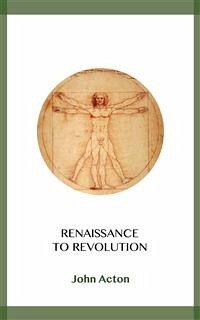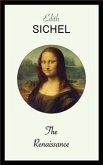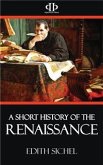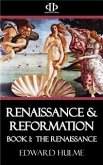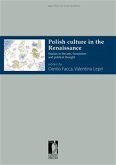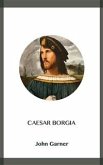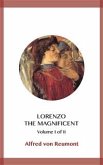John Acton weaves a fantastic history spanning from the Renaissance to the American Revolution. Featuring: Beginning Of The Modern State The New World The Renaissance Luther The Counter-Reformation Calvin And Henry Viii. Philip Ii, Mary Stuart, And Elizabeth The Huguenots And The League Henry The Fourth And Richelieu The Thirty Years' War The Puritan Revolution The Rise Of The Whigs The English Revolution Lewis The Fourteenth The War Of The Spanish Succession The Hanoverian Settlement Peter The Great And The Rise Of Prussia Frederic The Great The American Revolution "Modern History tells how the last four hundred years have modified the medieval conditions of life and thought. In comparison with them, the Middle Ages were the domain of stability, and continuity, and instinctive evolution, seldom interrupted by such originators as Gregory VII. or St. Francis of Assisi. Ignorant of History, they allowed themselves to be governed by the unknown Past; ignorant of Science, they never believed in hidden forces working onwards to a happier future. The sense of decay was upon them; and each generation seemed so inferior to the last, in ancient wisdom and ancestral virtue, that they found comfort in the assurance that the end of the world was at hand. "Yet the most profound and penetrating of the causes that have transformed society is a medieval inheritance. It was late in the thirteenth century that the psychology of Conscience was closely studied for the first time, and men began to speak of it as the audible voice of God, that never misleads or fails, and that ought to be obeyed always, whether enlightened or darkened, right or wrong. The notion was restrained, on its appearance, by the practice of regarding opposition to Church power as equivalent to specific heresy, which depressed the secret monitor below the public and visible authority. With the decline of coercion the claim of Conscience rose, and the ground abandoned by the inquisitor was gained by the individual. There was less reason then for men to be cast of the same type; there was a more vigorous growth of independent character, and a conscious control over its formation. The knowledge of good and evil was not an exclusive and sublime prerogative assigned to states, or nations, or majorities. When it had been defined and recognised as something divine in human nature, its action was to limit power by causing the sovereign voice within to be heard above the expressed will and settled custom of surrounding men. By that hypothesis, the soul became more sacred than the state, because it receives light from above, as well as because its concerns are eternal, and out of all proportion with the common interests of government. That is the root from which liberty of Conscience was developed, and all other liberty needed to confine the sphere of power, in order that it may not challenge the supremacy of that which is highest and best in man..."
Hinweis: Dieser Artikel kann nur an eine deutsche Lieferadresse ausgeliefert werden.
Hinweis: Dieser Artikel kann nur an eine deutsche Lieferadresse ausgeliefert werden.

